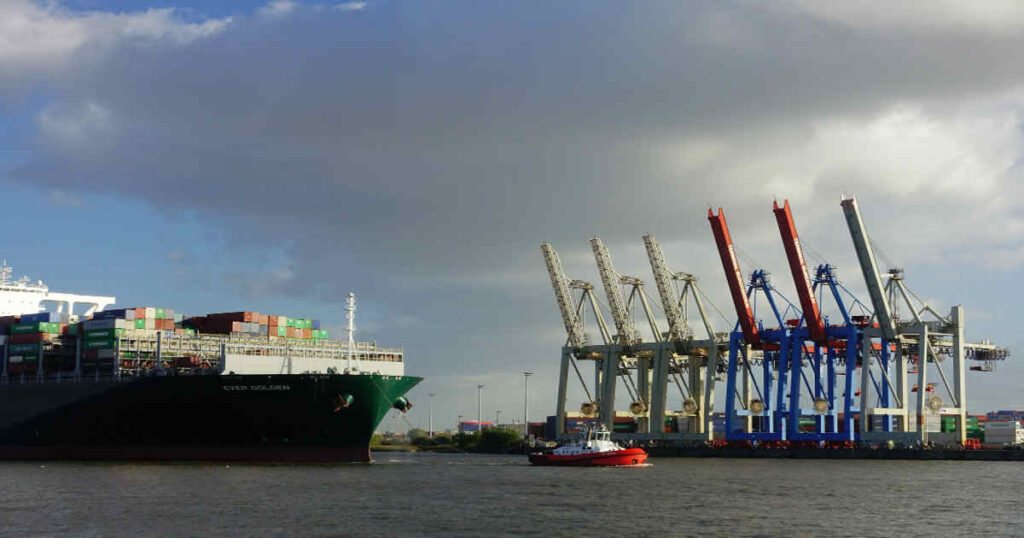1. Regulating International Shipping
Maritime law, also known as admiralty law, is essential for regulating the vast and complex world of international shipping. It provides a standardized set of rules that all nations and shipping companies must follow, ensuring consistency and fairness in global trade. This is crucial because, without a standardized legal framework, disputes between different jurisdictions could easily arise, leading to confusion and delays in the transportation of goods. Maritime law helps prevent such issues by establishing clear guidelines on the rights and duties of shipowners, operators, and crew members.
2. Ensuring the Safety and Security of Shipping
Safety and security are paramount in international trade, and maritime law plays a vital role in safeguarding both. The International Maritime Organization (IMO), a specialized agency of the United Nations, has established a comprehensive set of regulations under the International Convention for the Safety of Life at Sea (SOLAS) to protect ships, cargo, and crew members. Maritime law enforces these regulations, ensuring that ships are built and maintained to specific standards, equipped with safety gear, and operated by trained personnel. Additionally, maritime law addresses issues of piracy and terrorism, providing legal mechanisms to combat these threats and protect global trade routes.
3. Facilitating Dispute Resolution
In international trade, disputes are inevitable, whether they arise from cargo damage, contract breaches, or other issues. Maritime law provides a framework for resolving these disputes, either through arbitration or litigation. Arbitration is often preferred in the maritime industry due to its efficiency, confidentiality, and the expertise of arbitrators in maritime matters. Maritime law also outlines the jurisdiction and applicable law in case of disputes, which is crucial in a global industry where parties are often based in different countries. By providing clear legal avenues for resolving disputes, maritime law helps maintain the stability and predictability of international trade.
4. Protecting the Environment
The maritime industry, while essential for global trade, also has significant environmental impacts, including oil spills, pollution from ships, and harm to marine ecosystems. Maritime law includes various international conventions and regulations aimed at protecting the environment. The International Convention for the Prevention of Pollution from Ships (MARPOL) is one such regulation that sets strict guidelines for preventing and minimizing pollution from ships. Maritime law ensures that these regulations are enforced, holding shipowners and operators accountable for any environmental damage caused by their vessels. This is particularly important as environmental concerns continue to grow in importance on the global stage.
5. Governing the Rights of Seafarers
Seafarers are the backbone of the maritime industry, working in challenging conditions to ensure the smooth operation of international trade. Maritime law plays a crucial role in protecting their rights, including their working conditions, wages, and safety. The Maritime Labour Convention (MLC) is a key international treaty that sets out the rights and protections for seafarers, ensuring they are treated fairly and with respect. Maritime law enforces these standards, ensuring that seafarers are provided with decent working conditions, adequate rest periods, and access to medical care. This not only protects the welfare of seafarers but also contributes to the overall efficiency and safety of the maritime industry.
6. Regulating Trade Sanctions and Embargoes
In the complex world of international trade, geopolitical tensions can lead to the imposition of trade sanctions and embargoes. Maritime law plays a critical role in regulating these measures, ensuring that they are implemented effectively and in accordance with international law. Sanctions and embargoes can have significant implications for shipping companies, affecting their ability to transport goods to certain regions or trade with specific countries. Maritime law provides the legal framework for enforcing these measures, ensuring that shipping companies comply with international regulations while minimizing the impact on global trade.
7. Facilitating the Transfer of Ownership
Ownership of goods during international shipping can change hands multiple times before reaching the final destination. Maritime law governs the transfer of ownership through documents such as bills of lading, which serve as proof of ownership and a receipt for the goods. These documents are legally binding and play a crucial role in international trade, ensuring that the ownership of goods is clearly established at every stage of the shipping process. Maritime law also addresses issues such as liens and mortgages on ships, providing a legal framework for the financing and sale of vessels.
8. Supporting the Development of Ports and Shipping Infrastructure
Maritime law is not only concerned with the regulation of ships but also with the development and management of ports and shipping infrastructure. Ports are critical hubs in international trade, serving as gateways for goods entering and leaving a country. Maritime law governs the operation of ports, including the regulation of port services, the management of port facilities, and the safety and security of port operations. By providing a legal framework for the development of ports and shipping infrastructure, maritime law supports the growth of international trade and the global economy.
9. Adapting to Technological Advances
The maritime industry is constantly evolving, with new technologies being developed to improve the efficiency and safety of shipping. Maritime law must adapt to these changes, providing a legal framework for the use of new technologies such as autonomous ships, digital documentation, and advanced navigation systems. By keeping pace with technological advances, maritime law ensures that the industry remains competitive and that international trade continues to operate smoothly.
10. Promoting Global Trade Relations
Finally, maritime law plays a crucial role in promoting global trade relations by providing a common legal framework for countries to engage in maritime commerce. By establishing consistent rules and regulations, maritime law helps build trust and cooperation between nations, facilitating the flow of goods and services across borders. This is particularly important in today’s interconnected world, where international trade is a key driver of economic growth and development.
Conclusion to Maritime Law in International Trade
Maritime law is the backbone of international trade, providing the legal framework that ensures the safe, efficient, and fair operation of global shipping. From regulating the safety and security of ships to protecting the rights of seafarers and the environment, maritime law plays a critical role in supporting the growth of international trade and the global economy. As the maritime industry continues to evolve, the importance of maritime law will only continue to grow, ensuring that international trade remains a vital component of the world economy.



